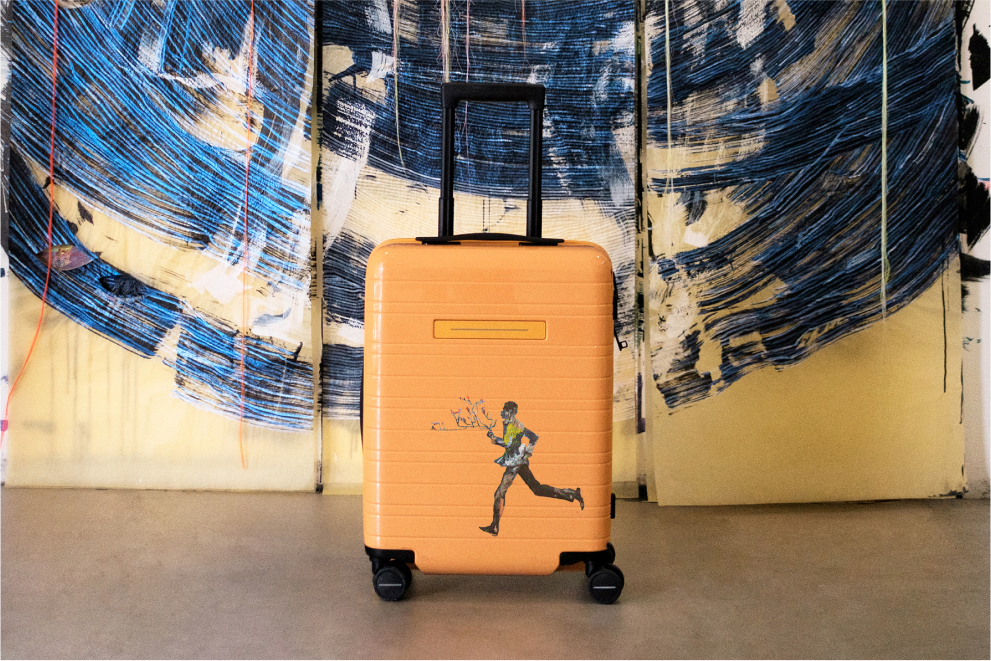Rirkrit Tiravanija – A Journey to the Unknown
An interview with the Horizn Discovery Award’s jury chair
Internationally acclaimed artist Rirkrit Tiravanija is heading the first edition of the Horizn Discovery Award. His work is widely recognised, defying media-based description by combining object making, performances and other forms of social action. For the Horizn Discovery Award 2018, Rirkrit was invited to nominate three artists with outstanding talent to make project proposals. In our exclusive interview we discuss his perspective on supporting young artists from non-Western regions, travel and identity. Have a read.
Rirkrit, we are honoured by you being our Jury Chair for the Horizn Discovery Prize 2018. What convinced you to participate in the Horizn Art Programme?
I guess it was the outreach of the prize, the idea of looking a younger artists at the periphery, and the opportunity that these young artists will receive from the prize.
You have nominated three brilliant artists for this year’s prize. Can you please tell us a bit more about your selection process? What made you to choose these artists?
I wanted a diverse idea of art practices, I wanted to select artists who are not in focus by the art industry, and certainly artists coming from diverse cultures. I think they are young artists whom are seriously working to find both new forms and contents as to what the ideas of art could be, as well I was interested in the aspect of collaborative practices, be it as a group or as a community.
Do you generally enjoy supporting young talent? What do you regard as the most important feature of such support?
Yes, I teach and I’m interested to be in touch with young artists and their ideas. Well, opportunity to realize work which are not market driven, but rather content driven, are opportunities to present their ideas without compromise.
You have been presenting your work and initiating projects globally. What does travelling mean to you?
It means I could be touched by diversity, by difference, and to be touched is to be exposed to ideas and life which opens up my understanding of the others.
Where is home for you?
Where I am standing at that moment.
Many of your works deal with quasi-objects: something that transcends pure materiality, happens momentarily or over a duration of time, and may disappear with(out) a trace. What is your main train of thought behind this approach?
That life is transient, nothing remains fixed, change is a constant and time is moving. That value isn’t in the object, and perhaps, rather it is in the experience that sharing could be without expectations.
A journey might be an art project too, like Marina Abramovic and Ulay’s walk on the China Wall, Alighiero Boetti’s visits to Afghanistan and Pakistan, Simon Starling’s “Shedboatshed,” and others. Did you have a project-cum-artwork? If not, what this be like, who would you invite and where would you go?
Everything I do is in the journey, I don’t make distinctions between living and working, I promote idleness, at least as a philosophical strategy. Everyone whom I’ve been touched by and that I’ve touched are a part of the journey and in that life is realized, and in that art can appear.
About Rirkrit Tiravanija
Thai performance artist Rirkrit Tiravanija, who was born in Buenos Aires, combines object making and other forms of social action in his artwork. After studying in New York City, Chicago and Canada, Rirkrit is now based between New York, Bangkok and Berlin, where he works as one of the most acclaimed artists of his generation. He is known for temporary architecture and the use of everyday objects that allow him to build an intense connection to his audience. He has also recently founded an ecologically oriented community in Thailand dedicated to sustainable agriculture.
Rirkrit’s work has been exhibited all over the world – at the Museum of Modern Art, New York, Musée d'Art Moderne de la Ville de Paris, the Institute of Contemporary Art, Philadelphia, the Serpentine Gallery, London and multiple Venice Biennales, to name only a few.
The winner of the 2018 Horizn Discovery Award: Art Labor Collective
Based in Vietnam, the Art Labor Collective focusses on visual arts, the science of life and how these aspects work in various public contexts and locales. At Art Labor Collective, it’s not solitary artworks being created, but projects with a long journey ahead. Every bit of inspiration is a seed waiting to grow; the seed expands, the inspiration rises and turns into roots of the next projects and artworks.
The current project, Jrai Dew, takes a critical look at the capitalised world we live in under consideration of mythic narratives. The group of Jrais assumes that being human is part of the metamorphic cycle of nature; after death, the human body goes back to its original shape and becomes a part of the environment – the state of non-being – and the previous body turns into the beginning of a new existence. Using materials and symbols reflecting either the Vietnamese Highlands or violent changes in history, Jrai Dew paints a poetic, as well as critical scene of human chaos.









